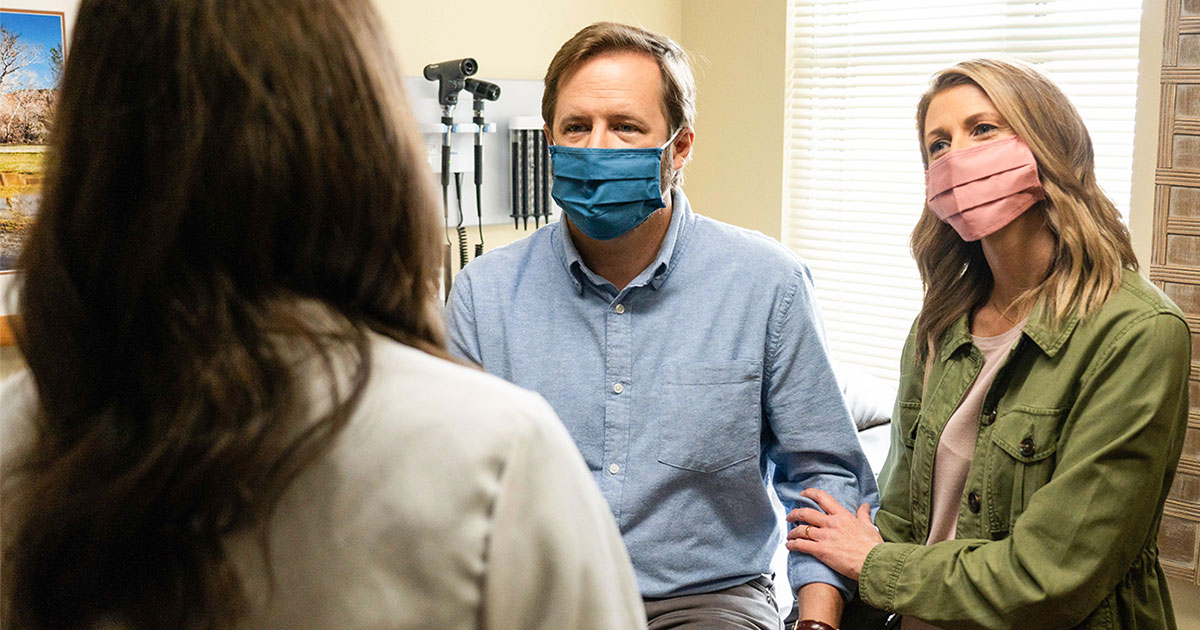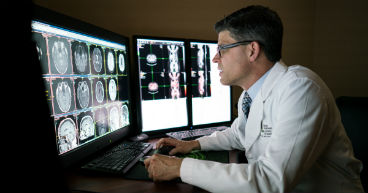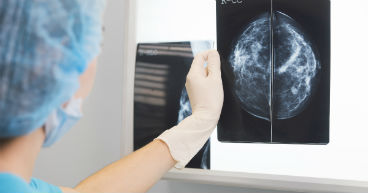
As many Americans continue to put the COVID-19 pandemic behind them, concerns about a separate wave of cancer cases in the United States continue to percolate. Since early 2020, when the pandemic forced lockdowns and began to strain hospital resources, the numbers of cancer screenings, diagnostic visits and even treatments plummeted. The fear is that those interruptions could lead to a jump in the number of cancer diagnoses, especially in cases of advanced disease that was allowed to progress during the pandemic. Now, some of those fears are coming to fruition.
The pandemic, and the delays it’s caused, came at a time when America was making promising strides in the treatment of cancer. A report from The National Cancer Institute shows that between 2014 and 2018, cancer deaths decreased for 11 of the 19 most common cancers among men and for 14 of the 20 most common cancers among women.
Data also showed that overall cancer death rates were declining among both genders and all racial and ethnic groups, with lung cancer and melanoma, in particular, causing substantially fewer deaths.
The trends underscored the intrinsic value of scientific research and medical advances, but also of increased awareness of the dire need for cancer screenings, says Maurie Markman, MD, President of Medicine & Science at Cancer Treatment Centers of America® (CTCA).
“The declines we’ve seen in cancer deaths are in large part attributed to an increase in screenings and messaging about the importance of screenings,” he explains.
The shadow curve
Now, though, experts fear the COVID-19 pandemic may have reversed at least some of those important gains. Medical professionals are already seeing a surge in cancer cases that went undiagnosed and untreated during the pandemic, a phenomenon CTCA President & CEO Pat Basu, MD, MBA, described as the “shadow curve.” While the world has been laser focused on COVID-19, cancer and other deadly diseases incubated in the shadows.
While the true impact of the decline in cancer screenings and treatments may not be known for years, early indications suggest that the dire projections may not be hypothetical. Doctors at the Moores Cancer Center in La Jolla, California, for instance, believe the reduction in cancer screenings during the pandemic may be to blame for an increased number of patients with breast and colon cancers at “late, incurable stages.” The report notes that:
Stage 1 breast cancer diagnoses declined from 64 percent of all cases in 2019 to 51 percent in 2020.
Stage 4 breast cancer diagnoses rose from 2 percent to 6 percent during that time.
Similar trends were noted for colon cancer and other cancer types.
Troubling signs ahead
When cities across the United States started issuing stay-at-home orders in March 2020, after the World Health Organization (WHO) declared COVID-19 a pandemic, securing provisions like food, toilet paper and hand sanitizer became the priority. An avalanche of news reports about record numbers of hospitalizations and deaths from the highly contagious virus induced panic and pandemonium in many communities, particularly scaring the most vulnerable: the elderly and the immunocompromised.
Afraid to leave home for fear of becoming infected, Americans nationwide opted to forgo activities they considered nonessential, among them routine medical appointments and cancer screenings. Even those willing to take the risk often were unable to do so because of a moratorium of sorts issued in April on elective procedures, a COVID-19 protocol intended for the dual purpose of mitigating virus spread and conserving health care resources. Two years later, however, medical experts are seeing the repercussions of the directive.
“Long-term effects are not measured over a couple of years, but over decades,” Dr. Markman says. “There’s no question that in the short run, people are now being diagnosed with more advanced stages of disease.”
In an editorial published in June 2020 in Science, National Cancer Institute Director Norman Sharpless offered a “conservative” prediction that, over the next decade, nearly 10,000 additional people may die from breast and colorectal cancers alone. And a study of the Veterans Affairs Healthcare System, the largest of its kind in the country, found that colonoscopies in 2020 decreased by 45 percent (compared to the annual averages in 2018 and 2019). Prostate biopsies at VA hospitals in 2020, meanwhile, dropped by 29 percent and chest CT scans by 10 percent.
Breast, colorectal, cervical and lung cancer screenings were the focus of a report published in February by The President’s Cancer Panel, established in 1971 as part of the National Cancer Act. In the report, the panel noted the “alarming drop in cancer screenings” since the pandemic’s onset and stressed the need for “urgent attention.”
“The postponement and cancellation of cancer screenings is projected to result in thousands of excess cancer-related deaths,” the report read. In just two years, decades of progress could potentially be reversed.
It's not too late
Researchers credit a variety of developments that helped reduce cancer deaths in the pre-pandemic years, including:
- Fewer smokers
- Targeted therapy
- Immunotherapy
- Improved screenings and diagnostics
If you’ve put off screening or canceled diagnostic tests or treatments during the pandemic call your doctor to schedule an appointment as soon as possible, Dr. Markman urges. If you’re one who has rarely or never been screened or hasn’t taken steps to help prevent cancer, it’s not too late. Talk to your doctor about which cancer screenings you should take and when. Other ways to reduce risk of cancer include:
- Quit smoking.
- Maintain a healthy weight.
- Eat a balanced diet with less red meat and processed foods and more whole grains, fruits and vegetables.
- Exercise.
- Moderate alcohol consumption.
- Be aware of potentially dangerous exposures to UV light, pollution and other environmental factors.
- Learn about your family history of cancer and consider genetic counseling or tests to determine whether you have an inherited cancer risk.
Despite the setbacks in postponed and canceled cancer screenings during the pandemic, and foreboding signs of what may lie ahead, Dr. Markman is cautiously optimistic that the landscape will improve, just as it did before the pandemic.
“Over the next year, hopefully, we’ll see a significant uptick in screenings, and we can relatively quickly get back to where we were, or have been, over the last several decades with a decrease in developing more advanced cancers. But it remains to be seen,” he says. “Hopefully, the country can return to a more normal situation and revert relatively quickly to the incredibly positive trend of reduction in cancer deaths.”
If you’re interested in getting screened for cancer or if you have been diagnosed with cancer and want a second opinion, call us or chat online with a member of our team.



